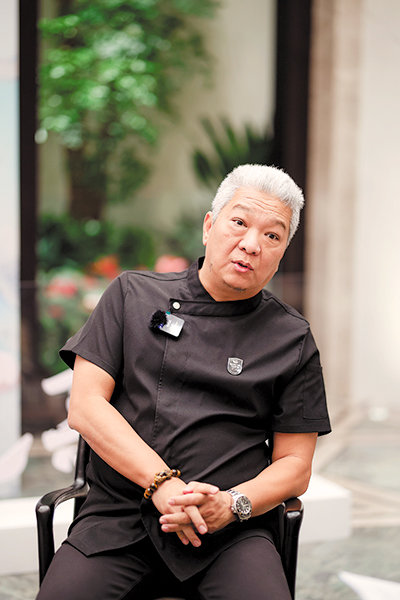Fujian's fragrant feast
As the popularity of regional cuisines heats up, a once-unappreciated tradition discovers fresh confidence, Li Yingxue reports.


According to Zheng, the development of Fujian cuisine has not only had an impact on the province's culinary scene, but has also stimulated the entire ecosystem of the province, contributing to the local GDP.
He has observed that, in recent years, many chefs are not only venturing beyond the province, but also innovating to introduce a wider range of Fujian cuisine to diners elsewhere. At the same time, chefs in the province are showcasing the brilliance of their cuisine to visitors in their own unique ways.
Wu Jie, who is also known as "Shangqing Jiege" runs the Shangqing Bengang seafood restaurant in Xiamen. Every day, he serves the freshest catches from the boats and shares intriguing videos on social platform Douyin, where he has gained over 9 million followers.
Although Wu Jie is a Xiamen native, he wasn't a seafood fan as a child, because he didn't like the way it looked. However, as his parents started using more seafood in home-cooked meals, he gradually developed a taste for its freshness and sweetness.
He says that Fujian cuisine stands out for its emphasis on freshness, which is why he has his own boat to buy fresh catches from other fishermen, and also ensures the shortest time and distance between the sea and the dining table by purchasing directly from boats.
He serves over 300 varieties of seafood every day, creating a unique experience for diners. As the daily catch varies, so does the menu, and prices fluctuate accordingly.
"I can't design a system to take orders and it may take half an hour to find a particular item of seafood, so the menu is handwritten. And the seafood I serve varies each day," Wu Jie explains. "Out-of-town customers usually order common seafood, while locals prefer rarer varieties, like a shellfish that resembles abalone called the 'abalone shell', which can be poached with ginger, steamed, marinated raw, or stewed into soup."
For Wu Jie, understanding the sea — knowing what is available in each season and how to harvest it — is as simple as opening his wardrobe and knowing where each item is stored.
He also makes videos to showcase the province's diversity of seafood. Initially educational, they gradually began to feature different ways of preparing seafood as his audience grew.
In contrast to Wu Rong, who is expanding Fujian cuisine restaurants nationwide, Wu Jie acknowledges that different Fujian restaurants have different business models.
His dishes are only available for local consumption, so only visitors can sample it. "I prefer to stay in one city for the long term," he says, adding he has no plans to expand.




































